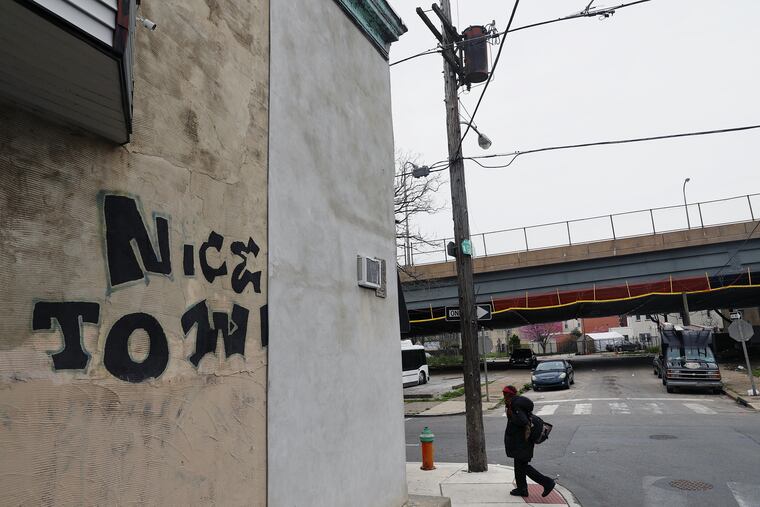The national infrastructure push offers hope for renewal in Philly neighborhoods like Nicetown | Opinion
Rebuilding once-vibrant neighborhoods that have suffered decades of neglect requires more than volunteers and big dreams, writes Rich Cucarese. Historic, comprehensive investments are needed.

When United Steelworkers Local 4889 relocated from Fairless Hills to Nicetown about two years ago, my union brothers and sisters and I rolled up our sleeves and began helping our neighbors confront the community’s daunting challenges.
We opened a food pantry in our union hall on Allegheny Avenue, held holiday toy drives for local children, and partnered with the Poor People’s Army to repair some of the community’s deteriorated homes, putting our skills as carpenters, plumbers, and electricians to good use.
But rebuilding Nicetown, a once-vibrant manufacturing neighborhood that’s suffered decades of neglect, requires more than volunteers can accomplish with big dreams and able hands.
Revitalizing this community — empowering the people here to attain a brighter future — requires the historic, comprehensive investments that can only be undertaken through the implementation of a national infrastructure program.
» READ MORE: Here’s what Pa.’s and N.J.’s chunk of the $1 trillion infrastructure bill might buy
The Senate took a crucial step forward in August with bipartisan passage of a $1 trillion infrastructure bill that paves the way for transformative improvements not witnessed in this country since the Works Progress Administration initiatives of the 1930s. Now, it’s essential that the House move forward with its own version of the legislation.
The Senate’s bill would invest billions in derelict roads and bridges, just like those requiring repair in Nicetown. It would upgrade the nation’s water systems, offering Philadelphians hope of eliminating the chronic line breaks plaguing Nicetown and other parts of the city. But the plan also calls for historic investments in other projects necessary for empowering America’s working people and building stronger, healthier communities.
Dominating Nicetown today are the hulking remains of old industrial sites that attract rodents, graffiti, and trash, all serving as constant reminders of the community’s long state of decimation.
As these manufacturers shuttered their plants, eliminating countless middle-class jobs, blight and poverty ran rampant, leaving many Nicetown residents to scrape by with dead-end jobs and raise their families on blocks with crumbling houses, endless sanitation issues, and high crime rates. Sadly, the appallingly low life expectancy, high levels of chronic disease, and the hazardous conditions of housing and other buildings make Nicetown one of the unhealthiest neighborhoods in Philadelphia.
» READ MORE: Infrastructure bill can make good on Biden-Harris’ pledges for racial equity | Opinion
The Senate’s bill allocates $21 billion for repurposing brownfield sites and other projects requiring environmental remediation, a potential source of funds for Nicetown and other communities across the nation seeking to return old factories and abandoned land to productive use.
Investments like these have the power to revive Nicetown’s manufacturing economy and lift up the entire neighborhood, provided residents not only have a voice in planning the improvements but access to the construction and manufacturing jobs — as well as the new housing and other opportunities — that the projects generate.
The Senate’s bill allocates an additional $1 billion to “reconnect” and enhance marginalized neighborhoods like Nicetown, which America has allowed to spiral into steep decline.
These funds would enable the residents of Nicetown to pursue construction of infrastructure, fostering cohesion and strength. They’d have the opportunity to install modern streetlights and replace cracked, broken sidewalks with safe, convenient pathways for pedestrians and bicyclists.
And they’d have a realistic opportunity to turn the space under the Roosevelt Expressway into the park and recreation complex they’ve long desired.
A national infrastructure program puts a brighter future for Nicetown within reach. My fellow union members and I urge Congress to quickly finalize action on this vital legislation so that residents — with an assist from volunteers like us — finally have the resources to move this community forward.
Rich Cucarese is the rapid response coordinator for United Steelworkers Local 4889, which represents workers at U.S. Steel’s plant in Fairless Hills and other units throughout the Philadelphia and New Jersey area.